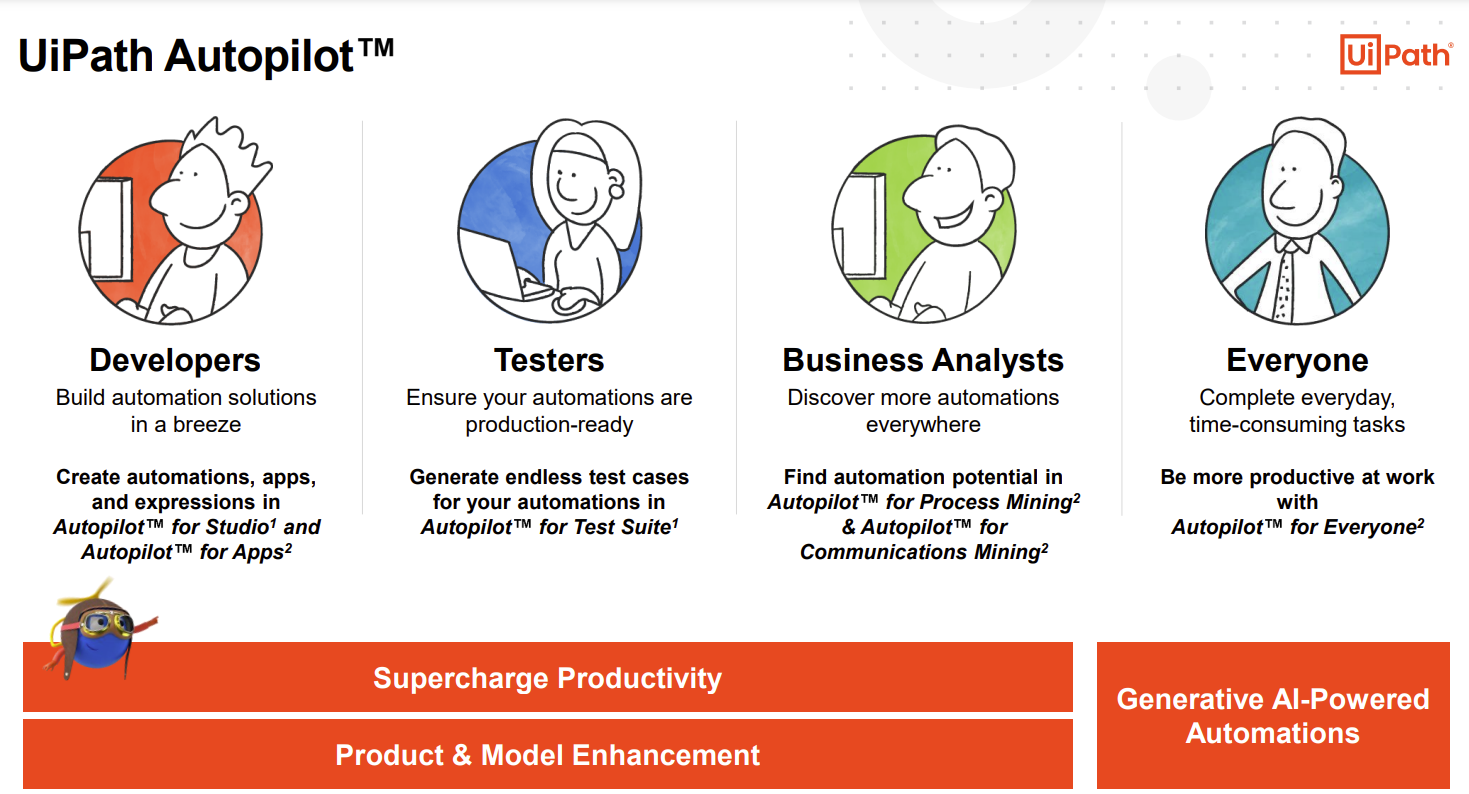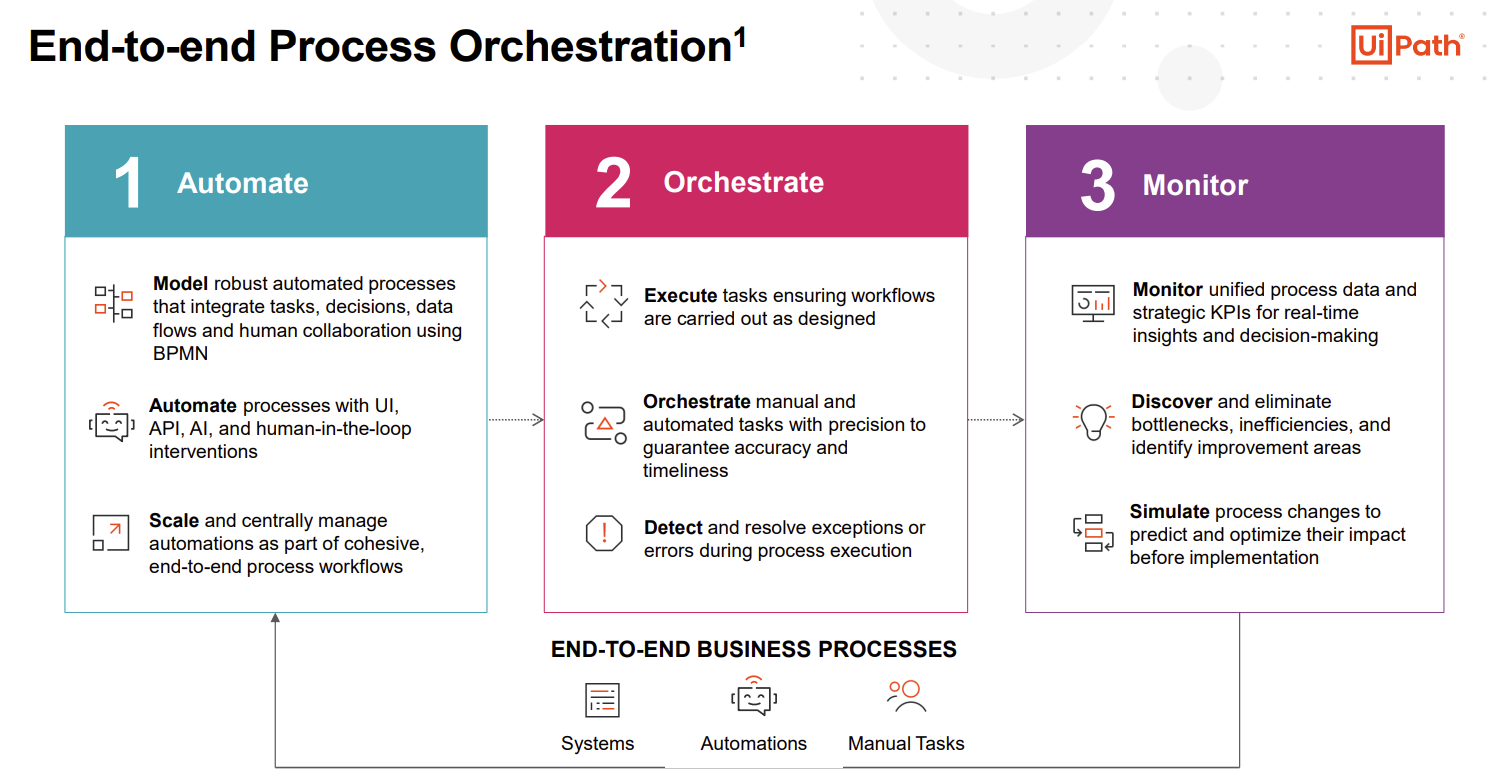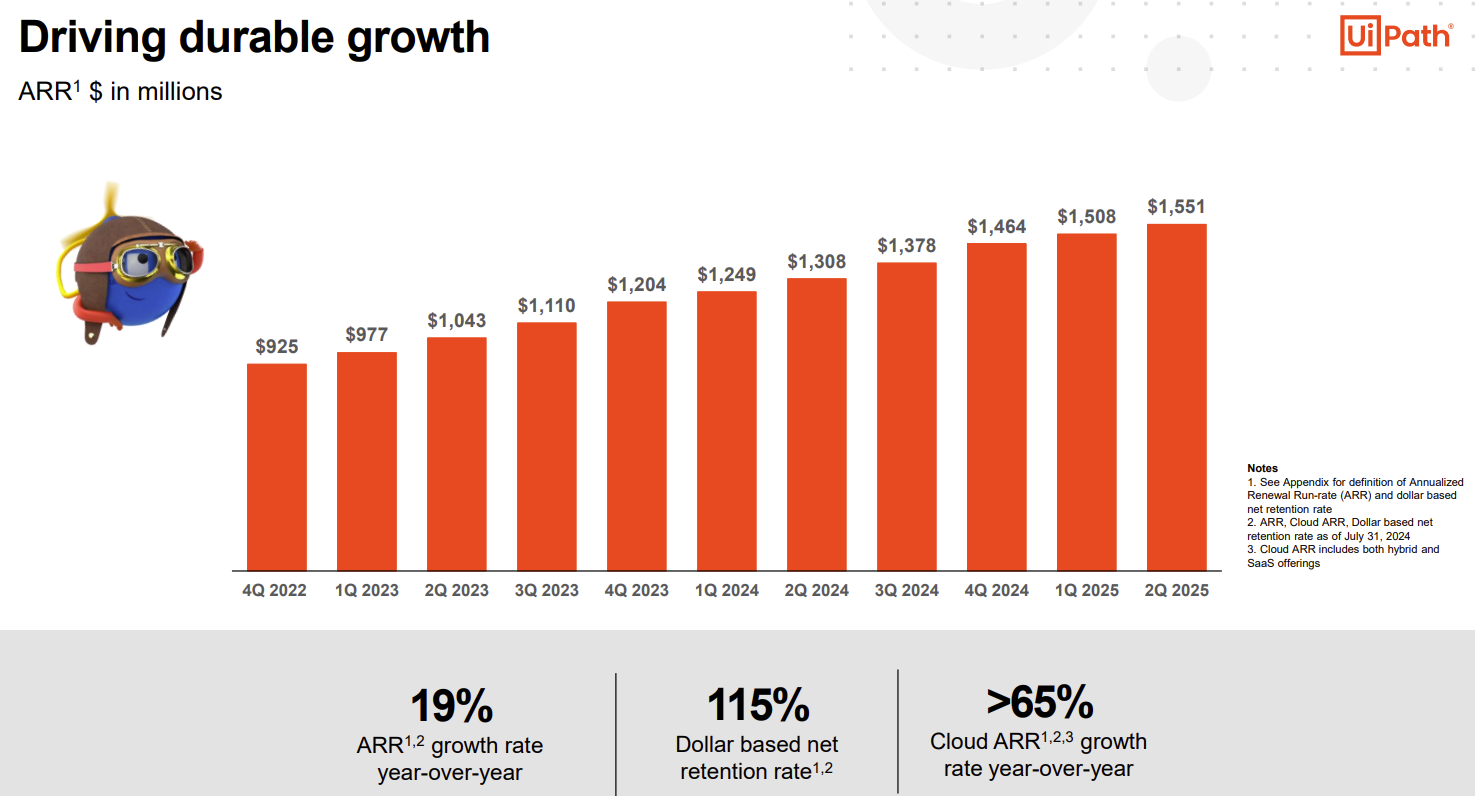UiPath's second quarter results indicate that enterprises are starting to realize that genAI-powered agents will require orchestration and process automation at the core.
The company, known for its robot process automation roots and automation platform, stabilized in the second quarter following a volatile first quarter that included the departure of CEO Rob Enslin.
Although UiPath's second quarter was better-than-expected, the big question about the company remains. Where does UiPath fit in the AI agent, generative AI and automation mix. An analyst asked UiPath CEO Daniel Dines where the company fits in the AI landscape. Here's what Dines said:
"We really think of an agentic process automation as an evolution of robotic process automation, I actually we started to socialize the agentic process automation term at the beginning of the summer. And we introduced the concept of robots and agents working together. And to me, an AI agent is basically a robot, if you want, that has some more new skills. And I think there will be multiple type of agents.
For instance, there will be agents that are capable of extracting information from long and complex documents. And users, human users will be capable of interacting with these agents asking questions. And in turn, they can ask the agents to perform actions for them. There will be agents that can make more intelligent decisions based on data, and they can route a process in a more dynamic way. Robotic means that the series, the steps in the process are stitched together in a fixed way. And agentic workflow might have dynamic routine as part of the process.
Our strength is in combining robotic automation with agentic automation as part of our process orchestration platform. The differentiator in customers deploying agents will be in how well they are integrated within the business platform and how well we can orchestrate between robots, agents and humans."
That excerpt is a mouthful, but may indicate how AI and automation discussions are maturing. Ashim Gupta, CFO and COO, noted that customers are "seeing the linkages between AI and automation" and the company is seeing clarity on enterprises and how they're focused on returns on investment in an uncertain economy.

Dines said UiPath's AutoPilot will be generally available soon with communications mining and process orchestration. He added that the company may feature "quite a different model that should tie our pricing more to the value that we deliver." Dines added that's it's too early to comment, but value driven by the UiPath platform.
In addition, UiPath has an internal initiative called "Unify build type" that will create a platform that has an integrated experience across roles. UiPath customers are increasingly adopting its full automation platform that includes document understanding and processing as well as RPA. Dines said:
"An enterprise will have maybe 100s and 1,000s of agents over time. It's equally important to orchestrate these agents, manage them, offer them in a secure and governed environment. We spent many years to build a scalable orchestration platform. We are just taking the best of LLM work, embedding it into our platform and delivering it to our customers.
Our platform emulates human users. That's the core tenet of what we are building. It's a natural extension from RPA to broader automation to an AI-powered automation platform."

Q3 outlook, Q2 numbers
UiPath's third quarter outlook was in line with expectations and the fiscal year view was better than expected. UiPath forecasted third quarter revenue of $345 million and $350 million compared to estimates of $347.5 million. For fiscal 2025, UiPath said revenue will be between $1.42 billion and $1.425 billion compared to estimates of $1.41 billion.
In the second quarter, UiPath reported non-GAAP earnings of 4 cents a share, a penny better than estimates, on revenue of $316 million, up 10% from a year ago. Wall Street was expecting revenue of $303.74 million.
UiPath's net loss for the second quarter was $85.1 million, or 15 cents a share.
By the numbers:
- UiPath ARR in the second quarter was $1.55 billion, up 19% from a year ago.
- UiPath had 2,163 customers with more than $100,000 in ARR.
- There were 293 customers with ARR of more than $1 million.



